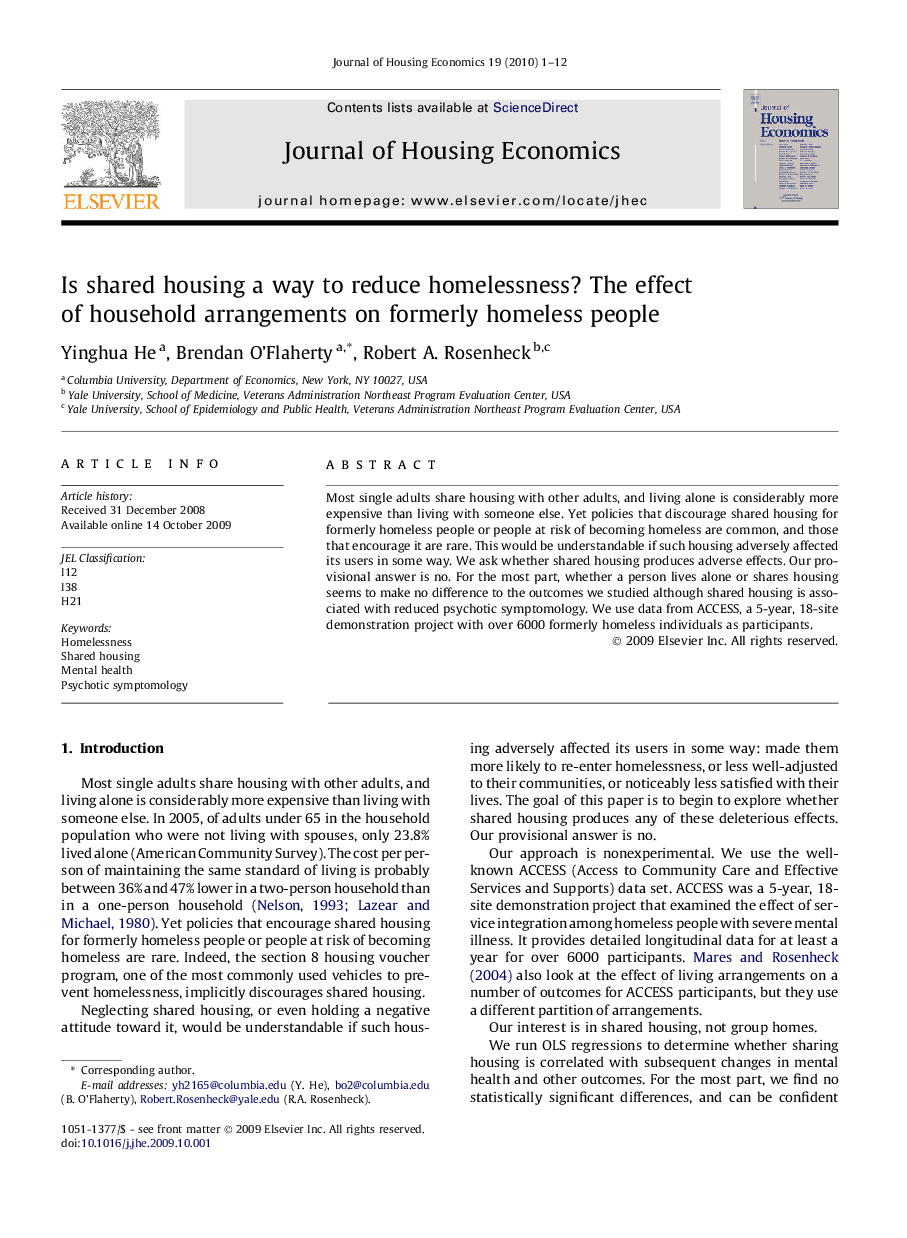| Article ID | Journal | Published Year | Pages | File Type |
|---|---|---|---|---|
| 962286 | Journal of Housing Economics | 2010 | 12 Pages |
Abstract
Most single adults share housing with other adults, and living alone is considerably more expensive than living with someone else. Yet policies that discourage shared housing for formerly homeless people or people at risk of becoming homeless are common, and those that encourage it are rare. This would be understandable if such housing adversely affected its users in some way. We ask whether shared housing produces adverse effects. Our provisional answer is no. For the most part, whether a person lives alone or shares housing seems to make no difference to the outcomes we studied although shared housing is associated with reduced psychotic symptomology. We use data from ACCESS, a 5-year, 18-site demonstration project with over 6000 formerly homeless individuals as participants.
Keywords
Related Topics
Social Sciences and Humanities
Economics, Econometrics and Finance
Economics and Econometrics
Authors
Yinghua He, Brendan O'Flaherty, Robert A. Rosenheck,
